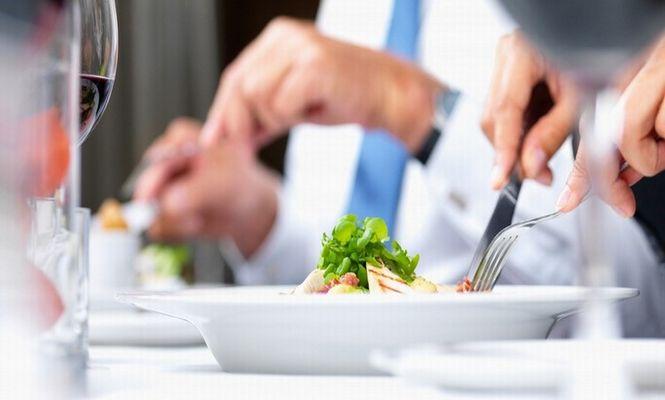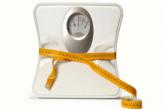Diet for pregnant woman guidelines:
Proper nutrition during pregnancy is important, but it mustn?t be stressful. Eating should be fun. Then all the body better digests and assimilates everything. In the first half of pregnancy when you realize that you're pregnant, you should look at your diet. Take a note of everything that you eat. In this way it is easier to catch errors and improve the menu. In early pregnancy, you should choose healthy, fresh, natural foods and avoid things that could harm you both - with preservatives or simply stale. Taking extra vitamins and minerals in pill form (with the exception of folic acid) is in the first three months of pregnancy inadvisable. An excess of certain vitamins (e.g. vitamin A) may be even harmful to the developing fetus. Of course, you should completely give up alcohol. In the second half of pregnancy the growing fetus needs more nutrients. This applies especially protein, which is the basic building blocks of tissues. There is also increasing overall caloric needs of a pregnant woman. According to the standards, it is about 3000 calories, just 700 calories more than before pregnancy. This is because the body can now make better use of food. So you can give your child everything he needs, while maintaining a reasonable diet.
|
|
|
Diet should contain:
- wholemeal bread, pasta and brown rice, which are the source of carbohydrates. These products provide energy, vitamins, minerals, and fiber.
- fresh fruit and vegetables, which are also rich sources of vitamins, minerals and fiber
- meat, fish, eggs, nuts, legumes, milk and its products. Provide not only protein but also iron and calcium
- vegetable fats (olive oil, oil), preferably in the form of an addition to salads
Limit intake of animal fats and sweets. An excess of foods containing fats and sugar favors the development of obesity. Particular attention should also be paid for vitamins and minerals. These includes in particular: iron, calcium and vitamin C.
Iron - is necessary for the construction of fetal tissues, notably red blood cells. If the mother's daily diet does not contain enough of this element, she?s in danger of anemia. The best source of iron is lean red meat, but can be replaced by other products such as eggs, beans and green vegetables - spinach, broccoli, sorrel. Very rich in iron is liver, but it also contains lots of vitamin A, which in excess can be harmful to the child. To prevent anemia, often in this period of pregnancy iron preparations are prescribed.
Calcium - is used to build the bones of the fetus. If the food was not enough, the child receives it from the mother's body, which weakens the teeth and bones. An excellent source of calcium is milk - just a glass a day. If you do not like milk, you can substitute it by yoghurt and cheese, and if you are allergic to them - green vegetables, beans and almonds. You can also take calcium tablets.
Vitamin C - because the body doesn?t store it, it must be found in the daily diet. It is necessary for proper growth of fetal tissues, and facilitates the absorption of other important nutrients such as iron. There is such in citrus fruits, strawberries, tomatoes, green leafy vegetables.
Treasure on plate:
A healthy and varied diet does not necessarily mean culinary extravagance. Just enjoy the benefits of what is readily available, inexpensive and simple in preparing.
Black bean - tasteful, full of proteins, fiber, potassium, iron, folic acid and thiamine.
Chickpeas - seeds of legumes. You can also buy it cooked (canned). It contains plenty of protein and iron, zinc and folic acid.
Couscous - fine grits with lots of fiber, protein and iron.
Whole-grain bread - an excellent source of fiber and vitamin B.
Oatmeal - excellent for stomach complaints. They also include a lot of folic acid, iron and vitamin B6.
Asparagus - the spring vegetables are extremely rich in vitamin C.
Cabbage - is low in calories, and contains a lot of vitamin C and folic acid.
Red peppers - has more vitamin C than citrus fruits, and a much of beta-carotene.
Potatoes - a good source of carbohydrates and vitamin C. The most valuable are boiled or baked in their skins.
Spinach - two cups cover half of the daily requirement for folic acid, besides, much of the vitamin C, vitamin E, calcium and iron.
Tofu (soy cheese) - an excellent source of protein. It also contains a lot of calcium, zinc and copper.
Lean beef - rich in iron, zinc and vitamin B12.
Fish - they contain unsaturated fatty acids which are important for eye and brain development of children. Due to the fact that the fish meat can accumulate chemicals from contaminated lakes and rivers, it is better to choose farmed fish or sea.
Eggs - contain lots of protein, iron and vitamin B12.
Orange juice - good source of folic acid and vitamin C. It?s good to drink while eating foods reach in iron, to increase its intake.
Strawberries - they contain plenty of fiber and vitamin C.
Ice cream - allowing you to something sweet in the proven ice cream shop, we supply the body with valuable protein and calcium.
Water - probably the most important nutrient. Drink at least eight glasses a day.
In addition to food which are particularly preferred are those where a pregnant woman should avoid, because it might harm him or the baby.
Don?t eat that:
- Raw or undercooked meat (steak tartare, bloody steak) - can be a source of Toxoplasma infection.
- Blue, soft feta and camembert type cheese - they meet in bacteria of the genus Listeria.
- Raw seafood and fish (sushi, oysters) - tend to be infected with dangerous bacteria or parasites.
- Coffee, strong tea.
- Cola - contain caffeine, which stimulates the body of mother and baby and can lead to arrhythmias.
- Raw eggs, unpasteurized milk - might be infected with salmonella.
A diet high in fiber prevents constipation, which often tease pregnant. It is found in fruits, vegetables and whole grain bread. Two cups of spinach, cover half of the daily requirement of folic acid. One glass of milk is sufficient to meet the daily need for calcium. The post vegetarian moms do not have to depart from his habits. A diet without meat may contain the necessary nutrients, provided it is well thought out. Sometimes, however, it must be enriched with iron preparations.
- Eat more often and smaller portions.
- Take care of a large amount of carbohydrates in the diet.













